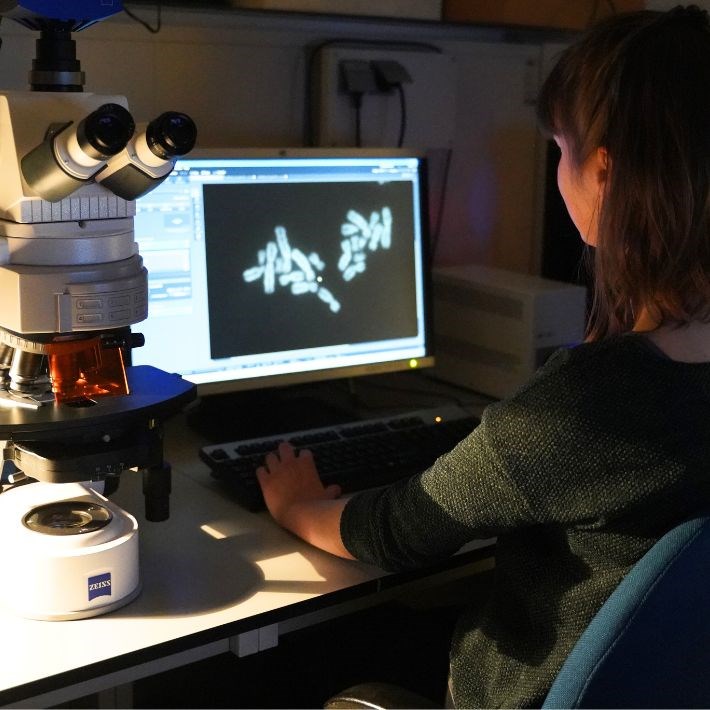Genomic research provides new lead for breast and ovarian cancer treatment
&width=710&height=710)
Reducing EXO1 protein activity
BRCA1 is a gene that helps repair DNA damage. In carriers of an inherited mutation in this gene, DNA breaks are not repaired properly due to loss of function of BRCA1. This leads to errors in the DNA that can cause tumour growth. Researchers from the LUMC, together with researchers from the US National Institute of Health, UMCG and UMC Utrecht, have discovered that loss of the protein EXO1 helps to target BRCA1-mutated cells.
In the study, published this week in the scientific journal Molecular Cell, the authors show that the loss of EXO1 in BRCA1-mutated cells leads to so much DNA damage that these cells die. Sylvie Noordermeer, group leader of DNA recombination and cancer at LUMC: "This is because the loss of the function of both BRCA1 and EXO1 switches off two different DNA repair processes simultaneously in the mutant cell. The healthy cells do not suffer from this problem."
Follow-up steps
"Now that we have this lead, we will start looking for a compound that can inhibit EXO1." explains Noordermeer. "From this, a new drug could potentially be developed. This will then be investigated in several pre-clinical studies before it can be taken into clinical practice."
Haico van Attikum, professor of chromatin and DNA repair at LUMC: "We obviously hope to find acompound that inhibits EXO1 as soon as possible, but a time frame cannot be predicted. It really depends on how quickly the right compound is found and which adjustments need to be made. In addition, it may turn out, for example, that the compound works better in combination with other drugs. We call that combination therapy. This needs to be properly researched."
Personalised medicine
The researchers see this study as an important addition for providing tailored treatment for a specific group of patients with breast or ovarian cancer. That treatment targets the genetic characteristics of specific patients, in this case an inherited mutation in the BRCA1 gene.
Importance of fundamental research
Fundamental research focuses on a better understanding how something works. In this case, the investigation focused on how DNA damage can be properly cleared in healthy cells and what goes wrong in cancer cells with a BRCA1 mutation. Van Attikum: “Understanding this better, paves the way for development of better treatments. That is the power of fundamental research."
The first authors of the study are Bert van de Kooij, Anne Schreuder en Raphael Pavani from the research groups of Sylvie Noordermeer (LUMC), Haico van Attikum (LUMC) and André Nussenzweig (NIH). Read the publication in Molecular Cel here.